Spending days in a devastated Italy
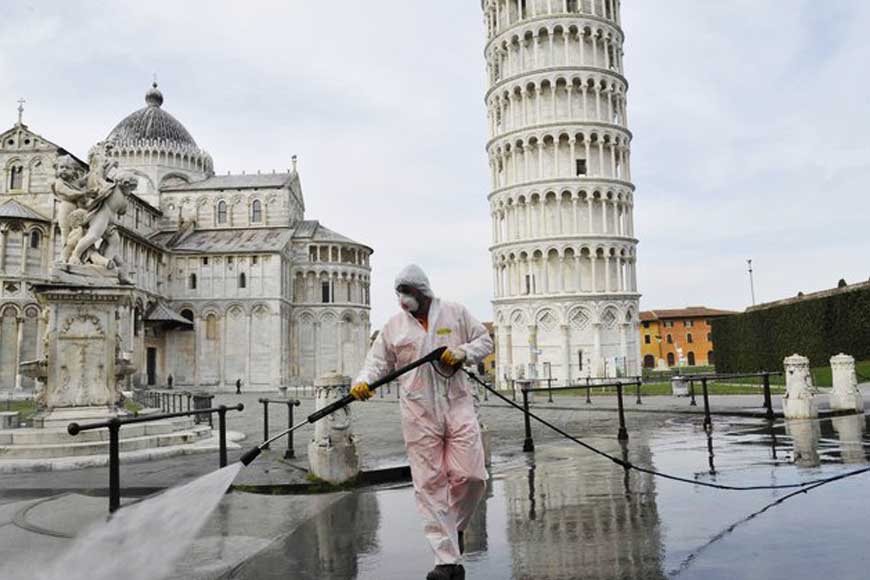
Sabyasachi Siddhanta is a scientist from Bengal. Presently, he is associated with The National Institute for Nuclear Physics (INFN), Italy.
Desperate times, desperate measures. I see people in masks and gloves, maintaining a 'safe' distance from each other in a queue to enter a pharmacy. Streets are empty, a scene straight out of a disaster movie. Well, almost. I don't remember when was the last time I remained at home for this amount of time. Probably, two decades back, when I had a ligament injury. Italy has declared a national lock-down, or a geographical quarantine as the public health officials would say, which was initially confined to the worst -hit areas mainly in Lombardia (home to Milan) and was then extended to all over Italy. Schools and universities are closed. So are museums, cinemas, theaters, pubs and similar places in the entire country. Civil, religious, cultural, recreational, sporting events/ceremonies in public or private spaces are suspended. All commercial and retail businesses except those providing essential services, like grocery stores and pharmacies, closed down. There would be sanctions for not respecting the lock-down. We can come out of our houses only in specific and well defined circumstances. The scenes are more or less similar all over Italy. A friend of mine, Livio, sent me a photo from Turin, showing empty streets. This was described as one of the largest lock-down in the history of Europe. Several other countries in Europe have started to implement similar measures to contain the epidemic. My friends from other European countries have also started working from home.
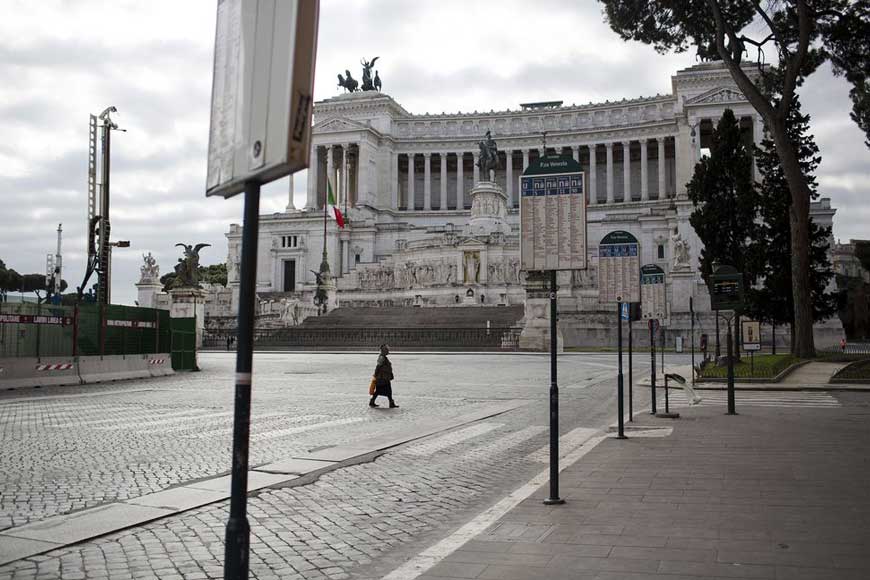
Many friends are asking what would be the effect in the long run? What would happen if the situation worsens and this continues for months, with even more stringent measures? One may recall Nishijapon, the gripping account by the celebrated Narayan Ganguly. I hope that a similar situation doesn't arrive anywhere, since it would require a complete disrespect of the lock-down by a large part of the population during this pandemic. This is not the case. Still, there were instances in some areas when the lock-down rules weren't respected fully. Now, the measures and sanctions are tightened further, like limiting the number of times one could come out, stricter sanctions and better monitoring using technological means. We need to really respect the lock-down to avoid letting the conditions worsen further.
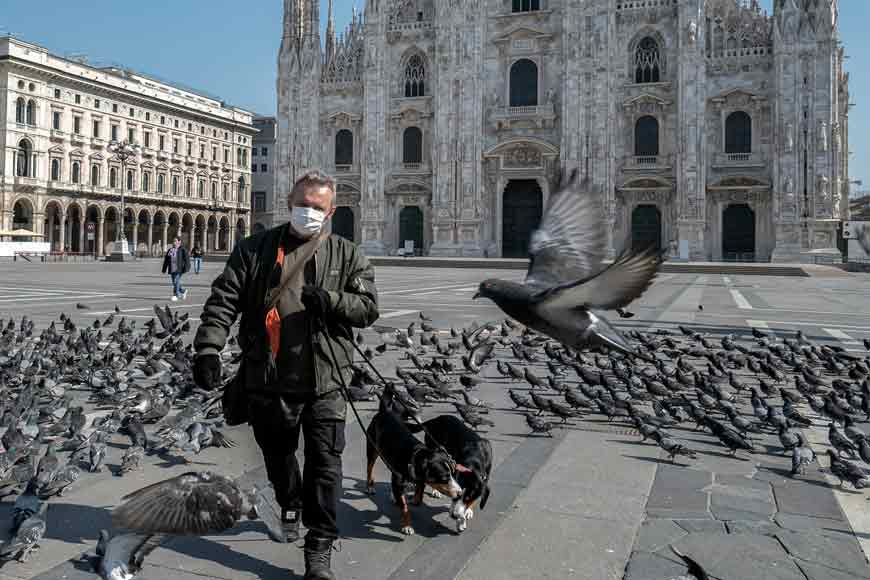
Staying at home for an entire population, in several countries has its impact on the economy. The economy in many countries is dependent on consumption and tourism. Staying at home means no spending at restaurants, cinemas, pubs, air tickets, hotels, wellness centers, resorts (which are closed anyway) etc. The Italian govt,. has announced a stimulus of 25 billion euros for the emergency, a part of which will boost the healthcare system and a part would be reserved for the future to tackle the aftermath, among others. Other countries too, including India, have taken similar measures. This would hit the economy of entire Europe (and also globally) really hard, and we may face a situation worse than the 2008 recession. But first and foremost we need to save our lives.
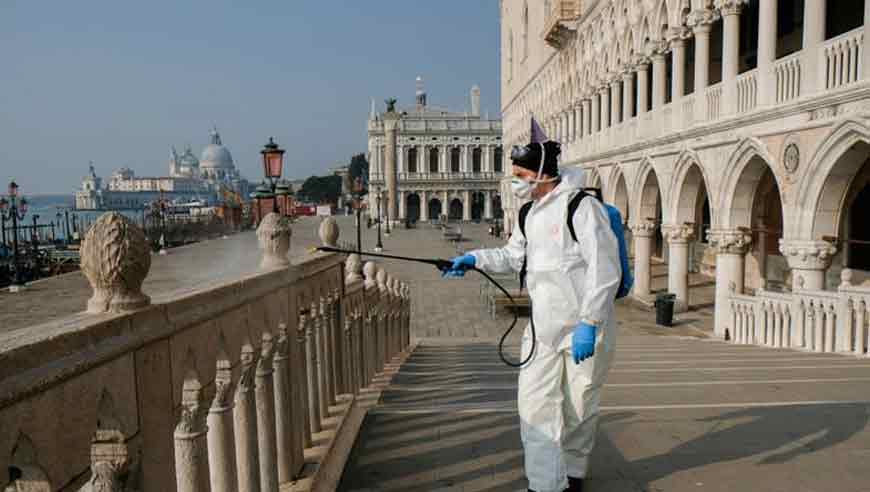
It seems that the lock-down has started to produce some results in Italy, albeit partial. This is giving us some hope. The hope is manifested by data. The daily growth rate in Italy has reduced from what was there initially. The numbers are big, which may appear shocking, but are a mathematical reality. There are several events in nature which follow an exponential growth, in biology, in nuclear physics, solid state physics etc. This term is also used in economics and population science. Viral infection spread is also a prime example of exponential growth, unless contained. So, the number of cases of Covid-19, even if is big, are consistent with an exponential. If we look at the number of cases of Covid-19 outside China (source WHO), we could see that it took about 20 days to go from 100 to 1k, 13 days to go from 1k to 10k and 14 days to go from 10k to 100k, following an exponential growth. It could be said analytically that it would require an average of around a bit more than two weeks to grow by a factor of 10. Doing an extrapolation, we could infer that the number of infections would reach 1 million cases in the first week of April, and 10 million by the 3rd week of April. This is a matter of concern and the spread should be stopped by adequate measures, so that the growth rate deviates from being an exponential towards a logistic curve before flattening out where there would be no more new infections. Countries even with excellent medical infrastructure would find it hard to contain the situation. Given the exponential growth, the hospitals wouldn't be able to provide adequate number of beds, specially to the patients needing intensive care. In the absence of a vaccine, the only measure available is to avoid contact with an infected person. Since an infected person might not know about his/her infection, given that in most cases the symptoms arrive late, the best way to avoid contact is to stay at home. This is also extremely important from the point of view of the infected person, to avoid risking others by socializing. Also, it is very important to perform more tests to understand better the extent of the spread which would make the measures more effective. In Italy, it seems that the growth rate has started to reduce (even if the numbers are big), thanks to the lock-down. We need to wait a bit more to have a clearer picture. In case of India, we can't allow the spread to hit the exponential growth. We can't afford that. Fortunately, India has started a lock-down. I hope we have learnt our lessons and respect the lock-down strictly.
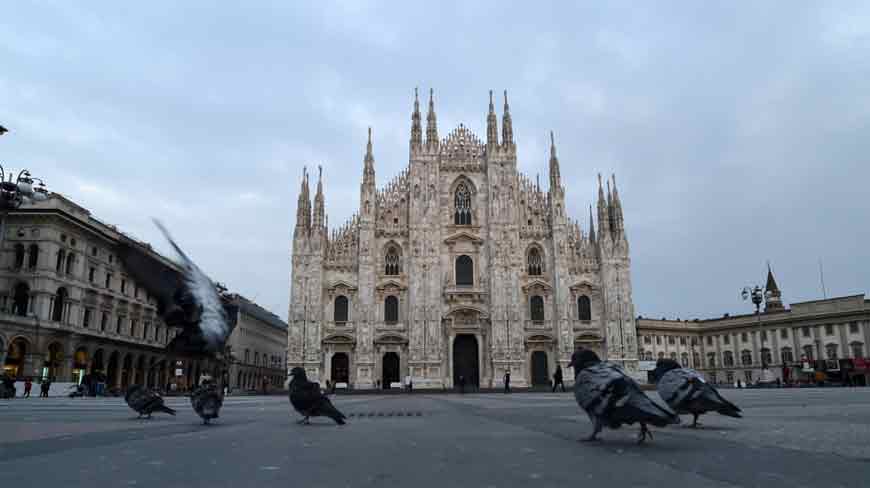
By now, we have read a lot about the evolving disaster. In this troubled times, let us focus on a different aspect; something which we can ponder upon in quarantine; something which might help us to introspect.
Working from home gave me some spare time. I could now spend some time reading, writing and pursuing some of my interests. Same is true for many others, rejuvenating a lost hobby or reading a forgotten book. We woke up to a new term, 'social distancing', which we are pursuing right now. This means not only not socializing in terms of get-together or parties or family reunions or elaborate dinners with friends, but also abandoning banal greetings with handshakes or a hot discussion over a coffee with an acquaintance at a bar. Who has last seen an orderly and a silent queue with people standing 1m apart? Given this situation, and the fact that we are social animals, there is another logical question. Where could we engage in socially, as an alternative? Guess what, we are used to it already for quite some years, at least most of us. The virtual world, the virtual society. We will surely be delving into the virtual society more than ever. We have seen many recent studies on how the social (virtual) media, social (virtual) networking are affecting our lives negatively, making us unsocial in the real world. So, this real-world social-distancing, if it continues for a longer period, would mean that people would be more unsocial than ever.
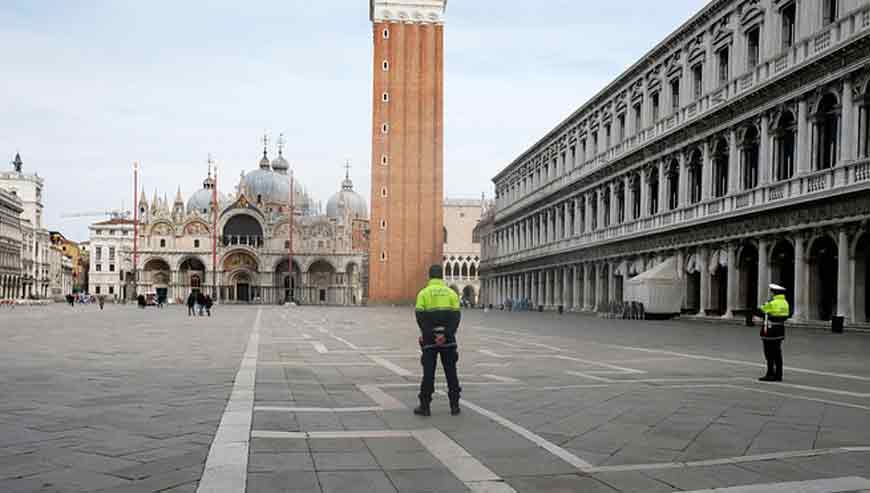
Is it so? I would love to differ. I presume that in this quarantined times, many would begin to miss the real world charm of having an adda, or a discussion over a cup of tea, or even a stroll down a road beside a stream with a friend, enjoying the simple joys of nature, the feeling of which which many of us have probably forgotten. Having all these always at our disposal, even if we weren't into those much, didn't let us to miss those things. Suddenly, they are not an option anymore, at least for some time. This would bring with it the realization of missing those. Already, some of us have started to appreciate the birds chirping or the missing sounds of nature. This would also bring an opportunity for those who have children at home, to encourage them to read (real-) books, engage in (real-) conversations and help them grow some extra-curricular interests. This break would give us some time to reflect on where we stand as a human being.
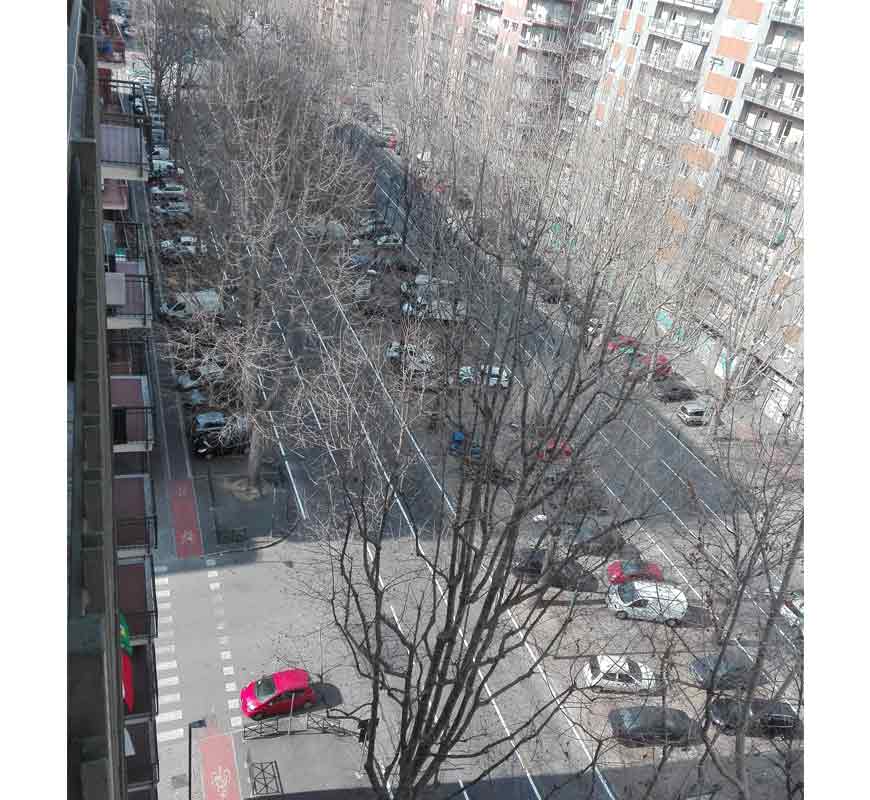
When a disaster strikes, we develop an increased sense of belonging and togetherness with our society and enhanced compassion towards our fellow citizens. I really hope that every one of us will come out of this disaster as a better, stronger and thoughtful individual.









